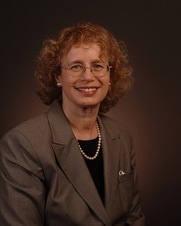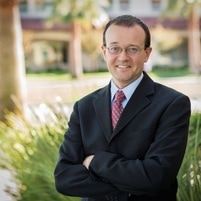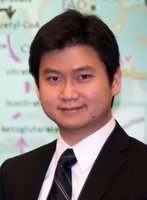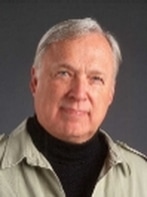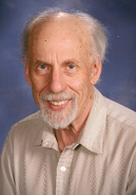The 2017 Russell Family Research Fellowship in Religion and Science
Transhhumanism is a secular ideology that invests technology with spiritual meaning. Presenting transhumanism as a pursuit for perfection of the human species, the lecture highlights the innate ambiguity of transhumanist discourse which treats perfection both as a stadial process of self-improvement as well as an end state of the process: the emergence of the posthuman species. The lecture highlights the main themes of transhumanist discourse -- human enhancement, morphological freedom, cyborgization, Singularity, and mind-uploading -- and argues that transhumanism is culturally significant but deeply misguided. The transhumanist pursuit of perfection by means of technology reflects the cross-currents of our post-secular age.
|
Hava Tirosh-Samuelson
Center for Jewish Studies Forum, Tuesday, March 7 CTNS Public Forum, Wednesday, March 8 Research Conference, Thursday, March 9 Register here: http://www.ctns.org/jkr_fellow_pay.html |
Richard S. Dinner Board Room
Graduate Theologial Union (Flora Lamson Hewlett) Library
2400 Ridge Road, Berkeley, California, USA
Graduate Theologial Union (Flora Lamson Hewlett) Library
2400 Ridge Road, Berkeley, California, USA
Professor Hava Tirosh-Samuelson is Irving and Miriam Lowe Professor of Modern Judaism, the Director of Jewish Studies, and Professor of History at Arizona State University in Tempe, AZ. She holds a Ph.D. in Jewish Philosophy and Mysticism from the Hebrew University of Jerusalem (1978), and a BA in Religious Studies from SUNY-Stony Brook, New York (1974). Prior to joining the faculty of Arizona State University in 1999, she taught at Indiana University (1991-1999), Emory University in Atlanta (1988-1991), Columbia University in New York (1982-1988), and Hebrew Union College in New York (1980-1982).
Tirosh-Samuelson is a Jewish intellectual historian who focuses on the interplay of philosophy and mysticism, Judaism and science, and Judaism and ecology. In addition to over 50 essays and book chapters, she is the author of Between Worlds: The Life and Work of Rabbi David ben Judah Messer Leon (1991) which received the award of the Hebrew University for the best work in Jewish history for 1991, and the author of Happiness in Premodern Judaism: Virtue, Knowledge and Well-Being in Premodern Judaism (2003). She is also the editor of Judaism and Ecology: Created World and Revealed World (2002); Women and Gender in Jewish Philosophy (2004); Judaism and the Phenomenon of Life: The Legacy of Hans Jonas (2008); Building Better Humans? Refocusing the Debate on Transhumanism (2011); Hollywood's Chosen People: The Jewish Experience in American Cinema (2012); Jewish Philosophy for the Twenty-First Century: Personal Reflections (2014); and Perfecting Human Futures: Transhuman Visions and Technological Imaginations (2016). Professor Tirosh-Samuelson is the editor-in-chief of the LIBRARY OF CONTEMPORARY JEWISH PHILOSOPHERS (2013-2017), a series of 20 books featuring outstanding Jewish thinkers today.
Within the field of science and religion, she explores the interplay of religion, science and technology with a focus on transhumanism. She is the PI or Co-PI of several Templeton funded projects: 1) "Facing the Challenges of Transhumanism: Religion, Science, and Technology" (2006-2010); 2) "The Transhumanist Imagination: Innovation, Secularization and Eschatology" (2012-14); and "Beyond Secularization: Piloting New Approaches for the Study of Religion, Science, and Technology in Public Life" (2016-2018). These grants have funded symposia, public lectures, faculty seminars, and international conferences. She is a member of International Society of Science and Religion (ISSR) and serves on the academic board of Zygon: Journal of Religion and Science. As Director of the Center for Jewish Studies at ASU, Tirosh-Samuelson manages the international society, Judaism, Science and Medicine Group (JSMG) and organizes its annual conferences.
Tirosh-Samuelson is a Jewish intellectual historian who focuses on the interplay of philosophy and mysticism, Judaism and science, and Judaism and ecology. In addition to over 50 essays and book chapters, she is the author of Between Worlds: The Life and Work of Rabbi David ben Judah Messer Leon (1991) which received the award of the Hebrew University for the best work in Jewish history for 1991, and the author of Happiness in Premodern Judaism: Virtue, Knowledge and Well-Being in Premodern Judaism (2003). She is also the editor of Judaism and Ecology: Created World and Revealed World (2002); Women and Gender in Jewish Philosophy (2004); Judaism and the Phenomenon of Life: The Legacy of Hans Jonas (2008); Building Better Humans? Refocusing the Debate on Transhumanism (2011); Hollywood's Chosen People: The Jewish Experience in American Cinema (2012); Jewish Philosophy for the Twenty-First Century: Personal Reflections (2014); and Perfecting Human Futures: Transhuman Visions and Technological Imaginations (2016). Professor Tirosh-Samuelson is the editor-in-chief of the LIBRARY OF CONTEMPORARY JEWISH PHILOSOPHERS (2013-2017), a series of 20 books featuring outstanding Jewish thinkers today.
Within the field of science and religion, she explores the interplay of religion, science and technology with a focus on transhumanism. She is the PI or Co-PI of several Templeton funded projects: 1) "Facing the Challenges of Transhumanism: Religion, Science, and Technology" (2006-2010); 2) "The Transhumanist Imagination: Innovation, Secularization and Eschatology" (2012-14); and "Beyond Secularization: Piloting New Approaches for the Study of Religion, Science, and Technology in Public Life" (2016-2018). These grants have funded symposia, public lectures, faculty seminars, and international conferences. She is a member of International Society of Science and Religion (ISSR) and serves on the academic board of Zygon: Journal of Religion and Science. As Director of the Center for Jewish Studies at ASU, Tirosh-Samuelson manages the international society, Judaism, Science and Medicine Group (JSMG) and organizes its annual conferences.
Respondents
|
Brian Patrick Green is assistant director of campus ethics at the Markkula Center for Applied Ethics and adjunct lecturer in the School of Engineering at Santa Clara University, California. He has M.A. and Ph.D. degrees in ethics and social theory from the Graduate Theological Union, Berkeley, and a B.S. in genetics from the University of California, Davis. His teaching and research interests focus on the ethics of technology, particularly with technology's more dramatic intersections with human life, such as the ethics of space exploration and use, the ethics of existential risk, and the ethics of transhumanism.
|
Arvin Gouw is a Cancer Nanotechnology Fellow at Stanford Medical School, an Affiliate Faculty at Harvard Divinity School, and Vice President of Research & Development at the Rare Genomics Institute. Arvin completed his fellowship in science and theology at Princeton Theological Seminary, his doctorate in pathology at Johns Hopkins Medical School, his master's degrees in philosophy at University of Pennsylvania, in theology at St. Mary's Ecumenical Institute of Theology, and in neuroscience at UC Berkeley.
|
|
| J.K. Russell Conference March 2017 | |
| File Size: | 1476 kb |
| File Type: | docx |
